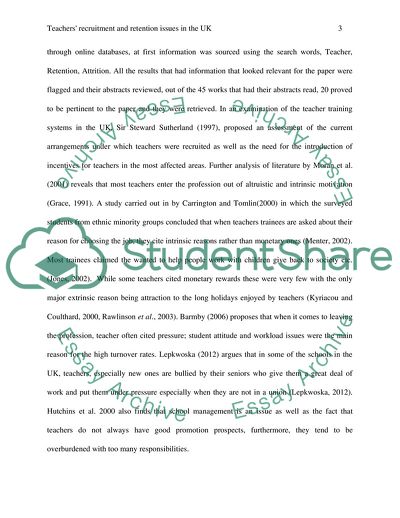Cite this document
(Teachers' Recruitment and Retention Issues in the UK Research Paper Example | Topics and Well Written Essays - 2000 words, n.d.)
Teachers' Recruitment and Retention Issues in the UK Research Paper Example | Topics and Well Written Essays - 2000 words. https://studentshare.org/education/1826862-teachers-recruitment-and-retention-issues-in-the-uk
Teachers' Recruitment and Retention Issues in the UK Research Paper Example | Topics and Well Written Essays - 2000 words. https://studentshare.org/education/1826862-teachers-recruitment-and-retention-issues-in-the-uk
(Teachers' Recruitment and Retention Issues in the UK Research Paper Example | Topics and Well Written Essays - 2000 Words)
Teachers' Recruitment and Retention Issues in the UK Research Paper Example | Topics and Well Written Essays - 2000 Words. https://studentshare.org/education/1826862-teachers-recruitment-and-retention-issues-in-the-uk.
Teachers' Recruitment and Retention Issues in the UK Research Paper Example | Topics and Well Written Essays - 2000 Words. https://studentshare.org/education/1826862-teachers-recruitment-and-retention-issues-in-the-uk.
“Teachers' Recruitment and Retention Issues in the UK Research Paper Example | Topics and Well Written Essays - 2000 Words”. https://studentshare.org/education/1826862-teachers-recruitment-and-retention-issues-in-the-uk.


